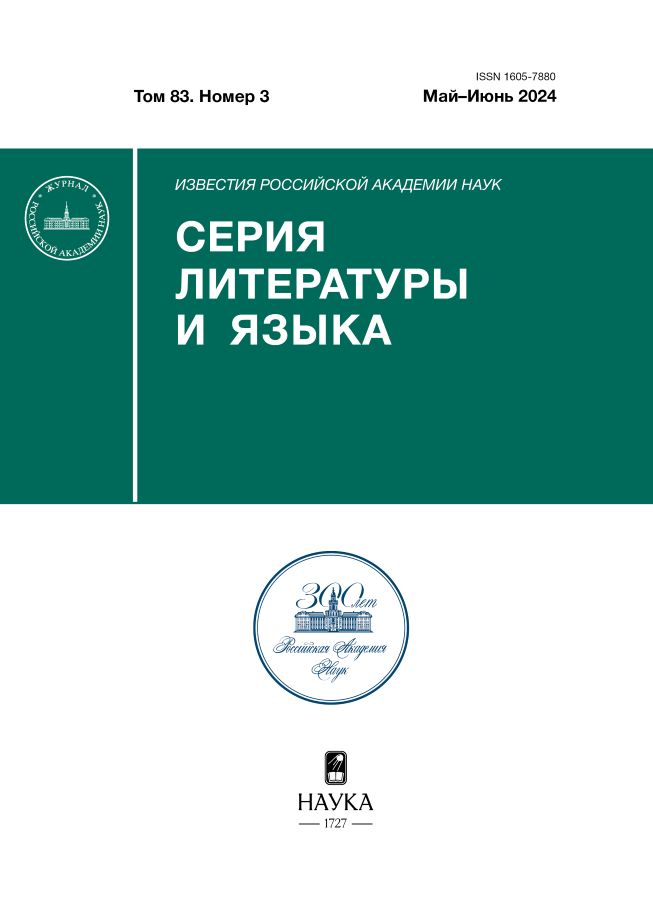“Red Gold” by Upton Sinclair and Piotr Pavlenko: Unwritten Soviet-American Novel
- Авторлар: Panova O.Y.1,2
-
Мекемелер:
- A.M. Gorky Institute of World Literature of the Russian Academy of Sciences
- M.V. Lomonosov Moscow State University
- Шығарылым: Том 83, № 3 (2024)
- Беттер: 33-44
- Бөлім: Articles
- URL: https://rjonco.com/1605-7880/article/view/657022
- DOI: https://doi.org/10.31857/S1605788024030034
- ID: 657022
Дәйексөз келтіру
Аннотация
On April 16, 1938 Upton Sinclair sent a letter to the editors of the Soviet magazine International Literature, in which he shared the idea of a new novel Red Gold and asked to find him a co-author among Soviet writers. In his letter U. Sinclair gave a detailed synopsis of the novel: the plot was to be based on the story of a young American engineer who in the mid-1920s goes to Siberia to provide Soviet gold mining with the American technology. There on the banks of the river Lena he meets a Russian Bolshevik girl and they fall in love. As an American “bourgeois specialist” he used to believe that capitalism is the most effective social and economic system; his belief, however, was shaken in the course of ideological disputes with his girl-friend, and the Great Depression of the 1930s increased his doubts. Soviet partners proposed Piotr Pavlenko as co-author, and the writers began to exchange letters, discussing their future work and various details of the planned novel. The project was supervised by the Foreign Commission of the Soviet Writers’ Union; its functionaries reported to party and government organs (the Central Committee of the Communist Party, the Peopleʼs Commissariat of Foreign Affairs). Letters signed by Pavlenko were read, edited and approved at several levels of Soviet bureaucracy, from the Writersʼ Union to the Press Department of the Central Party Committee. Thus, Upton Sinclair, in fact, negotiated and argued not just with his co-author, but with a hierarchial administrative body with a strict chain of command. Due to the obvious discrepancy between his own and Soviet attitudes, Sinclair soon decided to abandon the idea of a “collective novel”. The study is based on the materials from the funds of the Russian State Archive of Arts and Literature (RGALI).
Толық мәтін
Авторлар туралы
Olga Panova
A.M. Gorky Institute of World Literature of the Russian Academy of Sciences; M.V. Lomonosov Moscow State University
Хат алмасуға жауапты Автор.
Email: olgapanova65@mail.ru
ORCID iD: 0000-0002-2520-120X
Doct. Sci. (Philol.), Leading Researcher, Professor
Ресей, 25a Povarskaya Str., Moscow, 121069; 1 build. 51 Leninskie Gory, Moscow, 119991Әдебиет тізімі
- Geduld, H.M., Gottesman, R., еds. Sergei Eisenstein and Upton Sinclair: The Making & Unmaking of Que Viva Mexico! Bloomington; London: Indiana Uni versity Press, 1970. 499 p.
- Bogdanov, K.A. Negry v SSSR. Jetnografija mnimoj diaspory [Negroes in the USSR. Ethnography of an Ima ginary Diaspora]. Antropologicheskij forum [Forum for Anthropology and Culture]. 2014, No. 22, pp. 103–142. (In Russ.)
- Klein, I. Belomorkanal: literatura i propaganda v stalin skoe vremja [Belomorkanal: Literature and Propaganda in the Time of Stalin], transl. by M. Shulman. Novoe literaturnoe obozrenie [New Literary Observer]. 2005, No. 71, pp. 231–262. (In Russ.)
- David-Fox, M. Vitriny velikogo jeksperimenta. Kultur naja diplomatija Sovetskogo Sojuza i ego zapadnye gosti, 1921–1941 gody [Showcasing the Great Experiment: Cultural Diplomacy and Western Visitors to the Soviet Union, 1921–1941]. Moscow: Novoe literaturnoe obozrenie Publ., 2015. 568 p. (In Russ.)
- Bugaeva, L. Nauka “vospitanija novogo sovetskogo che loveka”: Kommuna v zhizni i na ekrane [Educating the New Soviet Man: Labor-Education Commune in Life and on Screen]. Novoe literaturnoe obozrenie [New Literary Observer]. 2022, No. 176, pp. 80–98. (In Russ.)
- Shubina, N.V. K probleme “perekovki” harakterov pravo narushitelej v uslovijah stanovlenija sovetskoj penitenciarnoj sistemy (publicistika A. M. Gorkogo 20-h–30-h godov. Vvedenie v temu po materialam muzejnyh fondov) [The Problem of the “Reforging” of the Characters of Offenders in the Formation of the Soviet Penal System (Gorky’s Journalism of the 1920s–1930s: Introduction to the Topic According to the Materials of Museum Funds)]. Acta eruditorum. 2020, Issue 33, pp. 83–85. (In Russ.)
- Bulgakova, O.S. My iz Igarki. Po sledam avtorov i geroev knigi [We are from Igarka. Tracing the Authors and Characters of the Book]. Uralskij sledopyt [Ural Stalker]. 1985, No. 3, pp. 46–55. (In Russ.)
- Liptak, T. O stanovlenii socrealizma: Maksim Gorkij i nachinajushhie pisateli v 1930-h gg. Diss. … doktora filos. n. [On the formation of Social Realism: Maxim Gorky and the aspiring writers in the 1930s, PhD Thesis]. Universität Konstanz, 2012. 259 p. (In Russ.)
- Stalin i kosmopolitizm. Dokumenty Agitpropa CK KPSS, 1945–1953 [Stalin and Cosmopolitanism. Agitprop Documents, 1945–1953], ed. D.G. Nadzhafov. Moscow: MFD-Materik Publ., 2005. 769 p. (In Russ.)
Қосымша файлдар









